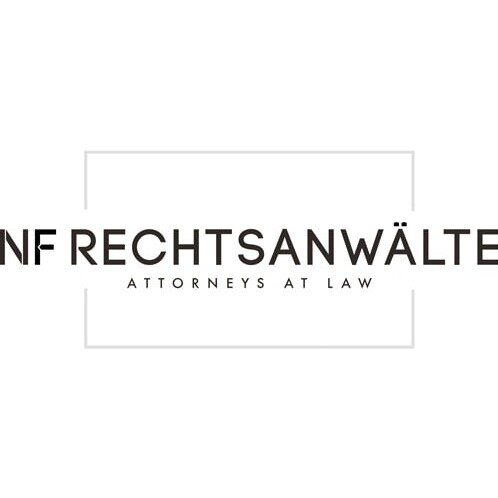Best Tax Increment Financing Lawyers in Graz
Share your needs with us, get contacted by law firms.
Free. Takes 2 min.
List of the best lawyers in Graz, Austria
About Tax Increment Financing Law in Graz, Austria
Tax Increment Financing (TIF) is a public financing method that is used to subsidize redevelopment, infrastructure, and other community improvement projects. In Graz, Austria, TIF is applied as a tool to stimulate urban development and encourage economic growth in specific areas, often referred to as TIF districts. By capturing the future tax benefits of a proposed project, local governments can leverage these future gains to finance current improvements. This model helps in revitalizing underdeveloped or blighted areas, promoting private investment, and improving public infrastructure without the need to raise taxes immediately.
Why You May Need a Lawyer
Engaging with Tax Increment Financing can be complex, and there are several situations where individuals or entities may require legal assistance:
- Navigating Complex Agreements: TIF involves intricate agreements between developers and governments; legal expertise can ensure that these agreements are clear and equitable.
- Compliance with Local Laws: Understanding and complying with local zoning laws, regulations, and requirements may require specialized legal knowledge.
- Dispute Resolution: Legal counsel may be necessary to resolve disputes that arise during the development process or related to funding agreements.
- Negotiation and Advocacy: Lawyers can negotiate terms and advocate on behalf of their clients to secure better deals or more favorable conditions.
- Risk Management: Identifying and mitigating financial or legal risks associated with TIF projects is crucial and often requires professional legal insight.
Local Laws Overview
The legal framework surrounding Tax Increment Financing in Graz is influenced by both national Austrian laws and local ordinances. Key aspects include:
- Establishment of TIF Districts: Criteria and processes to designate areas eligible for TIF are defined by local government, targeting zones that require economic revitalization.
- Financial Mechanisms: TIF in Graz allows capturing future increased property tax revenue generated by the uplift in property values to finance early-stage development projects.
- Regulatory Compliance: Projects must adhere to urban planning, environmental standards, and zoning regulations specified by local authorities.
- Public Involvement: There are statutory requirements for public consultations and involvement to ensure community needs and opinions are considered in TIF projects.
Frequently Asked Questions
What is a TIF district?
A TIF district is a designated area targeted for economic development and revitalization, where future tax revenue increments are used to fund current improvement projects.
How does TIF work?
TIF raises funds by capturing the anticipated increase in property taxes from rising property values within a designated district, utilizing it for immediate public or private projects.
Who can propose a TIF district?
Typically, a TIF district is proposed by local government entities; however, developers and property owners can initiate proposals by collaborating with these authorities.
What types of projects are financed through TIF?
TIF commonly finances infrastructure projects, public facilities, private development partnerships, environmental remediation, and affordable housing initiatives.
Can TIF affect current tax rates?
TIF does not directly alter current tax rates; it utilizes the incremental increase in taxes from a rising property value base to fund projects, without immediate tax hikes.
How long can a TIF district last?
The duration of a TIF district varies, but it's typically time-bounded to a period necessary to repay development costs, often around 20 to 30 years.
Are there risks associated with TIF?
Yes, risks include inaccurate revenue projections, disputes over benefits distributions, and potential financial burden if the development does not spur anticipated growth.
Who administers TIF funds?
Local government units are generally responsible for administering TIF funds, ensuring compliance with legal requirements, and proper use of resources.
Is public input required for establishing a TIF district?
Yes, public input is typically a legal requirement, achieved via public meetings and consultations to consider community concerns and priorities.
Can TIF be used for residential projects?
Yes, TIF can support residential projects, particularly those involving affordable housing, as long as they align with the established goals of the TIF district.
Additional Resources
For more information or assistance regarding Tax Increment Financing in Graz, consider the following resources:
- Local Government Offices: Engaging with municipal development departments can provide insights and guidance on TIF initiatives.
- Legal Professionals: Consulting with lawyers specializing in public finance or urban development law can be instrumental.
- Chamber of Commerce: This body might offer resources or networking opportunities with stakeholders engaged in TIF projects.
- Community Development Organizations: Such entities often offer support services or advice concerning urban development projects.
- Online Portals and Publications: Resources such as government websites or development journals can offer updates on TIF-related news and trends.
Next Steps
If you require legal assistance with Tax Increment Financing in Graz, consider the following steps:
- Identify Your Needs: Clearly outline what aspect of TIF requires legal counsel-be it contract negotiation, compliance, or dispute resolution.
- Research Legal Experts: Seek lawyers or law firms with expertise in TIF and urban development projects, leveraging recommendations or professional directories.
- Consult and Engage: Set up consultations to gauge expertise, discuss your specific needs, and understand the potential costs involved.
- Inquire About Process and Timeline: Understand the legal process, potential timelines, and receive professional advice on the best course of action.
- Community and Professional Networks: Engage with community networks or professional bodies that might offer additional insights or recommendations.
Lawzana helps you find the best lawyers and law firms in Graz through a curated and pre-screened list of qualified legal professionals. Our platform offers rankings and detailed profiles of attorneys and law firms, allowing you to compare based on practice areas, including Tax Increment Financing, experience, and client feedback.
Each profile includes a description of the firm's areas of practice, client reviews, team members and partners, year of establishment, spoken languages, office locations, contact information, social media presence, and any published articles or resources. Most firms on our platform speak English and are experienced in both local and international legal matters.
Get a quote from top-rated law firms in Graz, Austria — quickly, securely, and without unnecessary hassle.
Disclaimer:
The information provided on this page is for general informational purposes only and does not constitute legal advice. While we strive to ensure the accuracy and relevance of the content, legal information may change over time, and interpretations of the law can vary. You should always consult with a qualified legal professional for advice specific to your situation.
We disclaim all liability for actions taken or not taken based on the content of this page. If you believe any information is incorrect or outdated, please contact us, and we will review and update it where appropriate.













